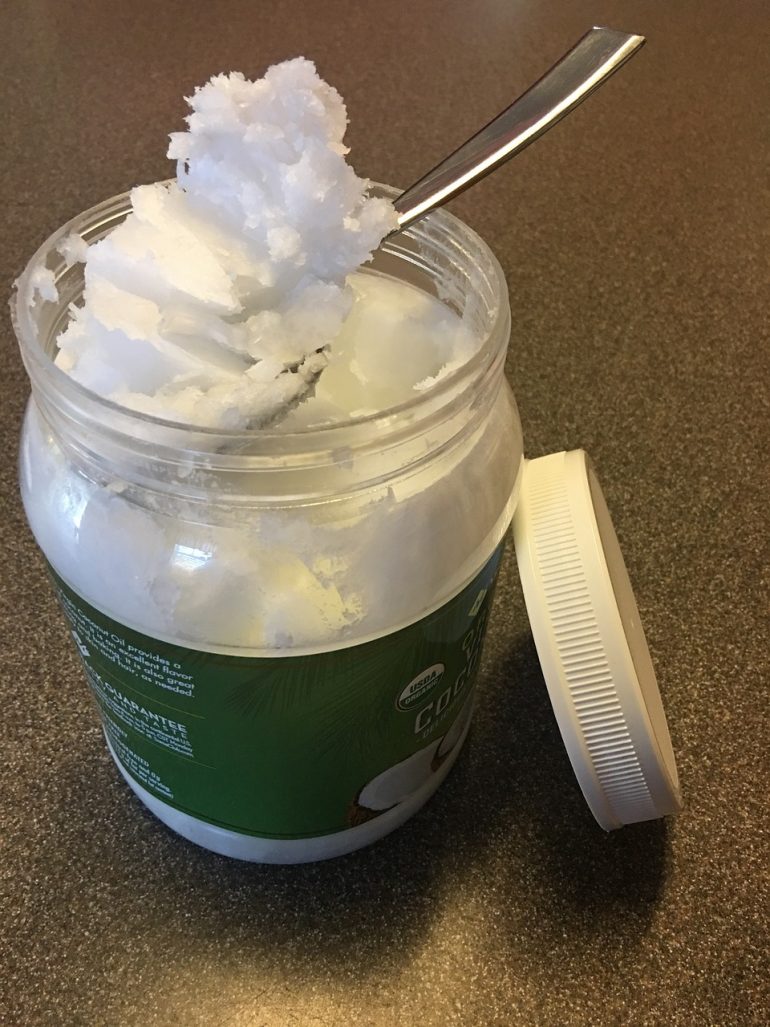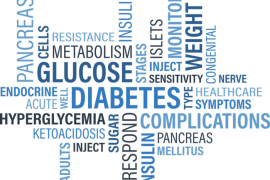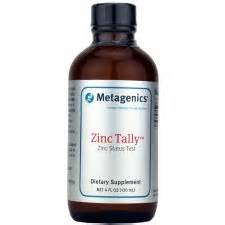Did you know that 50 percent of media headlines about medical studies are dead wrong? And that many of these headlines don’t accurately match the conclusions of the studies they cover? That’s from a review published in the New England Journal of Medicine.
It makes me sad and furious at the same time that journalists don’t do their homework and create firestorms of confusion because of their negligent work.
That is exactly what happened when USA Today published their article, Coconut Oil Isn’t Healthy. It’s Never Been Healthy. Shame on you USA Today editors for doing such a sloppy job of journalism.
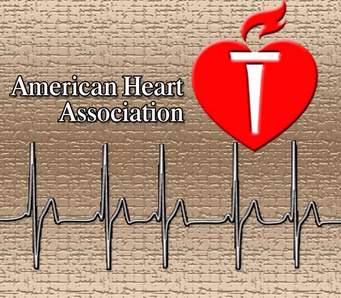
Why the American Heart Association Has Been and Still Is Wrong
First, there is not a single study showing that coconut oil causes heart disease. Not one. Second, the whole case against coconut oil is founded on a hypothesis that has been proven wrong. It’s the diet-heart hypothesis. Saturated fat raises LDL cholesterol. LDL cholesterol causes heart disease. Anything that raises LDL cholesterol is bad. Only problem is that the data does not support this hypothesis.
If you are geeky and want to read more where I cover the science in detail, read my blog Fat: What I Got Wrong, What I Got Right. But just like it took 150 years after Copernicus recognized that the earth revolves around the sun before it was finally accepted, it will take a while for the world to catch up with the false idea that low-fat and low-cholesterol diets won’t save us from heart disease. In fact, low-fat diets cause heart disease. I have covered all this in my last book, Eat Fat, Get Thin with hundreds of references.
The USA Today article was based on a review by the American Heart Association (AHA). They published a review of fat and heart disease. The AHA has been at the vanguard of bad advice for decades since they first hooked onto the fat is bad and will kill you meme. They told us to eat very low fat, low cholesterol diets and to eat tons of starchy carbs. By the way, the AHA gets huge funding from cereal makers that put the AHA seal of approval on sugary (including cereal makers) cereals because they are fat free despite containing 75 percent sugar. Except now the overwhelming amount of research has proved that idea to be dead wrong. In fact, their recommendations have killed millions of people (no joke) from heart disease and diabetes. That’s why the very conservative 2015 USDA Dietary Guidelines removed any upper limits on dietary fat and eliminated any restrictions on dietary cholesterol. In fact, after decades of telling us to avoid eggs and shrimp they said, Cholesterol is not a nutrient of concern for overconsumption.
If you are interested in the corruption of the AHA, its funding is supported by the Pharma industry, industrial food giants (including sugary cereal makers) and industrial vegetable oil manufacturers, then read this recent blog on Medium entitled, Is the American Heart Association a terrorist organization? I’m not calling the AHA a terrorist organization, I just want you to read the article and question who’s really pulling the strings.
How could this happen you might wonder? How could the scientists have gotten it so wrong? It all comes down to how we do the research. Most nutrition research is based on what we call observational studies. You follow a group of people for a long time, you ask them once a year what they ate last week and you see if patterns emerged. Good luck if they can remember. And people aren’t always honest if they think butter is bad, then they will underreport consumption. Problem is those types of studies do not prove cause and effect, just correlation. If I did a study on women over 55-years of age who have sex, I could conclude that sex RARELY leads to pregnancy. Pretty meaningless. The populations studied that ate saturated fats also were coincidentally smokers, didn’t exercise and ate otherwise unhealthy diets. Those who actually ate well, exercised and didn’t smoke (i.e. lead healthier lifestyles) also didn’t eat saturated fats because they were told not to. Studies prove that it was the well-rounded healthy habits that saved them, not less saturated fats.

Why Saturated Fats Are Not Bad and Are Essential for Health
This is exactly why multiple recent studies have shown no link between saturated fat and heart disease. You can read most of the important ones from the references, below, in my book and in the Fat: What I Got Wrong, What I Got Right article. In fact, there have been very few cause and effect studies in nutrition they are hard to do, take a long time and cost a lot. But two of the largest ones every published show that fat and saturated fat are not the problem. The first was the PREDIMED study where researchers gave 7,000 participants olive oil (which contains 20% saturated fat) or nuts vs. a low-fat diet. PERDIMED had to stop the study because the people who were following the low-fat diet were dying.
The next study was completed over 40 years ago, but it wasnt published because the results contradicted the prevailing dogma that saturated fat was bad and that LDL cholesterol caused heart disease. This was a study that could not be conducted today because it would be considered unethical. They fed 9,000 people in mental hospitals butter and saturated fats or corn oil (polyunsaturated vegetable oil, which the AHA report says we should eat more of). And, guess what? Those who ate the corn oil had more heart attacks and deaths, despite lowering their LDL cholesterol. Really? Yes, its true. In fact, for every 30-point drop in LDL the risk of heart attack went up 22 percent. To top it off a recent review of all the science on big bad butter looking at 6.5 million patient years of butter eating, researchers found that butter eaters had no increased risk of heart disease, but they did have decreased risk of type 2 diabetes. You read that right. Butter = lower risk of type 2 diabetes. And if you still need to be convinced, heres a review of 17 meta-analyses (reviews of all the best and relevant research) showing no link between saturated fat and heart disease.
The whole idea that LDL cholesterol causes heart disease is the reason we have a multi-billion dollar statin industry. One study of over 130,000 people who had heart attacks over 5 years showed that 75 percent had normal LDL and 50 percent had optimal LDL cholesterol. But only 10 percent had normal HDL or the protective cholesterol. Guess what raises HDL? Saturated fat. And coconut oil raises it the most of any saturated fat. And what lowers it? A low-fat, high-starch, and high-sugar diet. We need cholesterol and saturated fat for the health of every cell membrane, for your brain cells, your sex hormones and more. Cholesterol is not the cause of heart disease, it is the band-aid that tries to repair the arteries when damage occurs from a low-fat, high-starch, high sugar diet. This causes pre-diabetes and inflammation from a processed food diet, environmental toxins, a bad gut from a low fiber, processed diet or anything that causes inflammation.
Before we get off saturated fats, heres one BIG warning. They ARE a problem if you eat them in the context of a high-sugar, high-starch, processed foods diet. Its what I call sweet fat. Stay away. No bagels and butter. No donuts or French fries. Stick with butter and broccoli.
Why We Shouldn’t Be Mainlining Omega-6 Vegetable Oils
The other recommendation from the AHA other than dramatically lower saturated fat intake is to increase omega-6 refined vegetable oils. Bad idea. Yes, some studies show a lower risk of heart disease with a higher intake of omega-6 oils (otherwise known as polyunsaturated fats or PUFAs which include soy, corn, safflower, canola oils). Again I cover this in detail in Eat Fat, Get Thin, but the take-home is this: If you eat saturated fat in the context of the typical American diet, it will cause problems and the people in omega-6 studies were eating exactly that. And to make it more confusing, the studies looking at PUFAs included both omega-3 (super protective) and omega-6 fats. The omega-3s made the omega-6 cousins look better. When you look at just the studies of the effects of omega-6 fats, you find actually increase the risk of heart attacks. And it is just common sense and evolutionary sense our intake of these refined, heat processed, hexane treated, chemically deodorized oils (never consumed before in human history) have increase more than 1000 times (thats 100,000 percent) in the last 100 years. Saturated fats make your cholesterol molecules stable and less likely to oxidize or go rancid. It is oxidized cholesterol that causes heart attacks. The PUFAs are unstable and easily oxidized so when they are incorporated into cholesterol they make it unstable and go rancid which is bad for your heart.
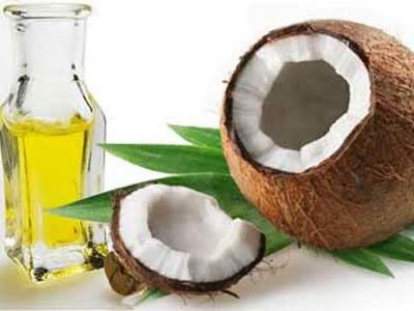
Is Coconut Oil Healthy?
We have had a coconut craze. What’s the deal? Broccoli is healthy but if that’s all you ate you would get sick. Coconut oil is healthy but only as part of an overall healthy diet not as the main course. Coconut oil has been consumed by populations in the South Pacific for thousands of years without ill effect. It has so many health benefits. You can read more in my article Is Coconut Oil Bad for My Cholesterol. But heres the short list of benefits. It raises HDL, the good cholesterol. It improves the quality and size and type of cholesterol. It lowers the total cholesterol to HDL ratio a far better predictor of heart disease than LDL. And cultures with 60 percent of their diet as coconut oil have no heart disease. It also contains a unique type of saturated fat called MCT oil that boosts metabolism, reverses insulin resistance, and improves cognitive function. Coconut oil is also anti-fungal and anti-microbial and it contains lauric acid that is great for immune function. The only other good source of lauric acid is breast milk, which contains 24 percent saturated fat far higher than the 6 percent the AHA recommends.
Who would you trust, nature/God or the American Heart Association? So, I am sorry you have to be buffeted about by bad conclusions from insufficient outdated science and bad journalism. But hopefully reading this helps, and if you are so inclined check out the references below, my other blogs on this topic, and my book so you can come to your own conclusions.
Wishing you health and happiness,
Mark Hyman, MD
Appel, L.J., Sacks, F.M., Carey, V.J., Obarzanek, E. Swain, J.F., Miller, E.R. 3rd,OmniHeart Collaborative Research Group. (2005). Effects of protein, monounsaturated fat, and carbohydrate intake on blood pressure and serum lipids: results of the OmniHeart randomized trial. Journal of the American Medical Association, 294(19):2455-2464.
Assun, M.L., Ferreira, H.S., dos Santos, A.F., Cabral, C.R., & Florêncio, T.M.M.T. (2009). Effects of dietary coconut oil on the biochemical and anthropometric profiles of women presenting abdominal obesity. Lipids, 44(7), 593-601.
Barberger-Gateua, P., Samieri, C., Feart, C., & Plourde, M. (2012). Dietary omega 3 polyunsaturated fatty acids and Alzheimers disease: interaction with apolipoprotein E genotype. Current Alzheimers Research, 8(5), 479-491.
Calder, P.C. (1998). Dietary fatty acids and the immune system. Nutritional Reviews, II, S70-S83.
Cardoso et al. (2015). A coconut extra virgin oil-rich diet increases HDL cholesterol and decreases waist circumference and body mass in coronary artery disease patients. Nutrition Hospitals, 32(5), 2144-2152. doi: 10.3305/nh.2015.32.5.9642.
Crawford, M.A., Broadhurst, C.L., Guest, M., Nagar, A., Wang, Y., Ghebremeskel, K., & Schmidt, W. (2013). A quantum theory for the irreplaceable role of docosahexaenoic acid in neural cell signaling throughout evolution. Prostaglandins Leukotrienes and Essential Fatty Acids, 88(1), 5-13.
Daley, C. A., Abbott, A., Doyle, P. S., Nader, G. A., & Larson, S. (2010). A review of fatty acid profiles and antioxidant content in grass-fed and grain-fed beef. Nutrition Journal, 9(1), 10.
Das, U.N. (1994). Beneficial effect of eicosapentaenoic and docosahexaenoic acids in the management of systemic lupus erythematosus and its relationship to the cytokine network. Prostaglandins Leukotrienes and Essential Fatty Acids, 51(3), 207-213.
de Souza et al. (2015). Intake of saturated and trans unsaturated fatty acids and risk of all cause mortality, cardiovascular disease, and type 2 diabetes: a systematic review and meta-analysis of observational studies. British Medical Journal, 351.
Estruch, R., Ros, E., Salas-Salvado, J., Covas, M.I., Corella, D., Aros, F.,PREDIMED Study Investigators. (2013). Primary prevention of cardiovascular disease with a Mediterranean diet. New England Journal of Medicine, 368(14), 1279-1290. doi: 10.1056/NEJMoa1200303
FAO/WHO. (2009). Fats and fatty acids in human nutrition. Proceedings of the Joint FAO/WHO Expert Consultation. November 10-14, 2008. Geneva, Switzerland. Annals of Nutrition and Metabolism, 55, 1-3.
Fernando, W.M.A.D.B., Martins, I.J., Goozee, K.G., Brennan, C.S., Jayasena, V., & Martins, R.N. (2015). The role of dietary coconut for the prevention and treatment of Alzheimers disease: potential mechanisms of action. British Journal of Nutrition, 1-14.
Intahphuak, S., Khonsung, P., & Panthong, A. (2010). Anti-inflammatory, analgesic, and antipyretic activities of virgin coconut oil. Pharmacological Biology, 48(2), 151-157.
Kalmijn, S., Feskens, E.J.M., & Kromhout, D. (1997). Polyunsaturated fatty acids, antioxidants, and cognitive function in very old men. American Journal of Epidemiology, 145, 33-41.
Liau, K.M., Lee, Y.Y., Chen, C.K., & Rasool, A.H.G. (2011). An open-label pilot study to assess the efficacy and safety of virgin coconut oil in reducing visceral adiposity. ISRN Pharmacology. doi: 10.5402/2011/949686
Mensink, R.P., Zock, P.L., Kester, A.D., & Katan, M.B. (2003). Effects of dietary fatty acids and carbohydrates on the ratio of serum total to HDL cholesterol and on serum lipids and apolipoproteins: a meta-analysis of 60 controlled trials. American Journal of Clinical Nutrition, 77(5), 1146-1155.
Mielke, M.M., Zandi, P.P., Sjogren, M., Gustafson, D., Ostling, S., Steen, B., & Skoog, I. (2005). High total cholesterol levels in late life associated with a reduced risk of dementia. Neurology, 64(10), 1689-1695.
Mozaffarian, D., & Ludwig, D.S. (2015). The 2015 US Dietary Guidelines: Lifting the Ban on Total Dietary Fat. Journal of the American Medical Association, 313(24), 2421-2422.
Morin, C., Blier, P.U., & Fortin, S. (2015). Eicosapentaenoic acid and docosapentaenoic acid monoglycerides are more potent than docosahexaenoic acid monoglyceride to resolve inflammation in a rheumatoid arthritis model. Arthritis Research Therapies, 17, 142. doi: 10.1186/s13075-015-0653-y.
Morgan, R.E., Palinkas, L.A., Barrett-Connor, E.L., & Wingard, D.L. (1993). Plasma cholesterol and depressive symptoms in older men. The Lancet, 341(8837), 75-79. doi:10.1016/0140-6736(93)92556-9
Nafar, F., Clarke, J.P., & Mearow, K.M. (2017). Coconut oil protects cortical neurons from amyloid beta toxicity by enhancing signaling of cell survival pathways. Neurochemical International, 105, 64-79. doi: 10.1016/j.neuint.2017.01.008.
Narayanankutty, A., Mukesh, R.K., Ayoob, S.K., Ramavarma, S.K., Suseela, I.M., Manalil, J.J.,Raghavamenon, A.C. (2016). Virgin coconut oil maintains redox status and improves glycemic conditions in high fructose fed rats. Journal of Food Science and Technology, 53(1), 895-901.
Nettleton, J. (1995). omega-3 fatty acids and health. New York Chapman & Hall. p. 67-73.
Nonaka, Y., Takagi, T., Inai, M., Nishimura, S., Urashima, S., Honda, K.,…Terada, S. (2016). Lauric acid stimulates ketone body production in the KT-5 astrocyte cell line. Journal of Oleo Science, 65(8), 693-699.
Ogbolu, D.O., Oni, A.A., Daini, O.A., & Oloko, A.P. (2007). In vitro antimicrobial properties of coconut oil on Candida species in Ibadan, Nigeria. Journal of Medical Foods, 10(2), 384-387.
Petrusson, H., Sigurdsson, J.A., Bengtsson, C., Nilsen, T.I., & Getz, L. (2012). Is the use of cholesterol in mortality risk algorithms in clinical guidelines valid? Ten years prospective data from the Norwegian HUNT 2 study. Journal of the Evaluation of Clinical Practice, 18(1), 159-168.
Ramsden et al. (2016). Re-evaluation of the traditional diet-heart hypothesis: analysis of recovered data from Minnesota Coronary Experiment (1968-1973). British Medical Journal, 353.Simopoulos, A.P., & Salem Jr., N. (1992). Egg yolk as a source of long-chain polyunsaturated fatty acids in infant feeding. American Journal of Clinical Nutrition, 55, 411-414.
Rose, D.P. (1997). Dietary fatty acids and cancer. American Journal of Clinical Nutrition, 66(suppl), 998S-1003S.
Seaman, D.R. (2002). The diet-induced pro-inflammatory state: a cause of chronic pain and other degenerative diseases? Journal of Manipulative and Physiological Therapeutics, 25(3), 168-179.
Seneff, S., Wainwright, G., & Mascitelli, L. (2011). Nutrition and Alzheimers disease: The detrimental role of a high carbohydrate diet. European Journal of Internal Medicine, 1-7.
Simopoulos, A.P. (1991). Omega-3 fatty acids in health and disease and in growth and development. American Journal of Clinical Nutrition, 54, 483-463.
Sinclair, H. (1981). The relative importance of essential fatty acids of the linoleum and linolenic families: studies with an Eskimo diet. Progress in Lipid Research, 20, 897-899.
Siri-Tarino, P.W., Sun, Q., Hu, F.B., & Krauss, R.M. (2010). Meta-analysis of prospective cohort studies evaluating the association of saturated fat with cardiovascular disease. American Journal of Clinical Nutrition, 91(3), 535-546.
Stillwell, W., & Wassall, S.R. (2003). Docosahexaenoic acid: membrane properties of a unique fatty acid. Chemistry and Physical Lipids, 126(1), 1-27.
Veum et al. (2016). Visceral adiposity and metabolic syndrome after very high-fat and low fat isocaloric diets: a randomized controlled trial. American Journal of Clinical Nutrition
Yang, H.Y., de la Rubia Orti, J.E., Sabater, P.S., Castillo, S.S., Rochina, M.J., Ramon, N.M., & Montoya-Castilla, I. (2015). Coconut oil: Non-alternative drug treatment against Alzheimers disease. Nutrition in Hospitals, 32(6), 2822-2877.

